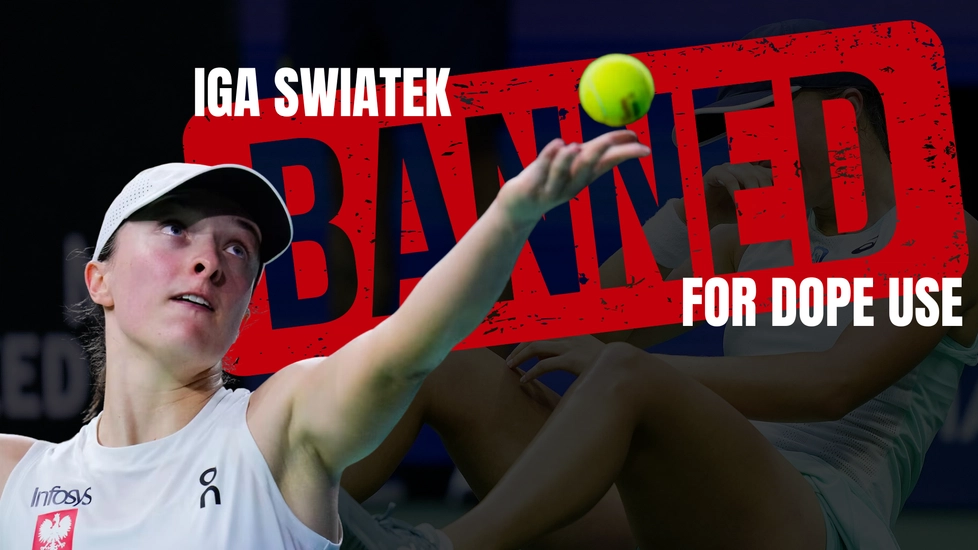Iga Świątek Suspended After Positive TMZ Test
Iga Świątek, the world’s top female tennis player, has faced a positive drug test for TMZ (trimetazidine), a substance typically used for heart conditions.
Published Nov 29, 2024

Table of Contents
- Reason of the ban
- Is this a serious offence?
- Iga Świątek's Positive Test: An Unintentional Error
- How does the tennis association handle these cases?
In an unexpected twist, world-renowned tennis star Iga Świątek has faced investigation after a positive drug test. Although Świątek tested positive for a banned substance, the International Tennis Integrity Agency (ITIA) determined that the crime was not serious and the player's level of guilt was small. The chemical in question, TMZ, is typically used as a cardiac medicine, but it has been implicated in several high-profile doping instances in the sports community.
Reason of the ban
Iga Swiatek tested positive for trimetazidine (TMZ) in an out-of-competition urine sample collected on August 12, three days before her opening match at the Cincinnati Open. She was notified of the anti-doping rule infraction one month later, on September 12.
Is this a serious offence?
The International Tennis Integrity Agency (ITIA) does not consider this a significant offence. TMZ is generally used as a cardiac medicine and has been implicated in several high-profile doping instances. However, the ITIA determined that Swiatek did not intentionally take the illegal chemical and that her level of responsibility in the positive test was at the "lowest end of the range" for no major fault or ignorance. The ITIA accepted that Swiatek's positive test was caused by contamination of the non-prescription medicine melatonin, which he had been taking to treat jet lag and sleep problems. Melatonin is a regulated drug in Poland.
During the investigation, the ITIA submitted a pack of Swiatek's melatonin and an unopened pack from the same batch to an independent Wada-accredited laboratory in Utah for testing. Tests confirmed that the material was tainted with TMZ, which was verified by an independent scientific expert from another Wada-accredited facility.
Iga Świątek's Positive Test: An Unintentional Error
Świątek, the 2023 French Open champion and world's top female tennis player, tested positive for TMZ during a routine doping screening. Despite the presence of the illegal chemical in her system, the ITIA found no serious fault or negligence on her behalf.
The agency's inquiry concluded that Świątek did not intend to use the illegal substance. The ITIA agreed that she was most likely exposed to the chemical unintentionally, and her level of responsibility was determined to be at the "lowest end of the range." This verdict indicates that while Świątek's positive test constituted a breach, it was not willful cheating.
How does the tennis association handle these cases?
Swiatek's one-month penalty includes the three-week provisional suspension she has already served, giving her seven days to serve before being free to participate again on December 4. The WTA season has ended and will resume on December 27, thus her schedule will not be greatly impacted.
Swiatek and Sinner's anti-doping charges are two of the most high-profile cases in the sport's history, given both players were rated first at the time. Both times, the players were successful in overturning their provisional penalties and competing without announcing their adverse tests. The ITIA may face further pressure to modify its rules governing provisional suspensions.
Also Read:
Rafael Nadal’s Final Goodbye To Tennis
Rafael Nadal’s Smashing Car Collection
Dolph Lundgren Beats Cancer After 9-Year Struggle: 'Finally Cancer-Free'
Write a comment
Comments
No Comments Yet







